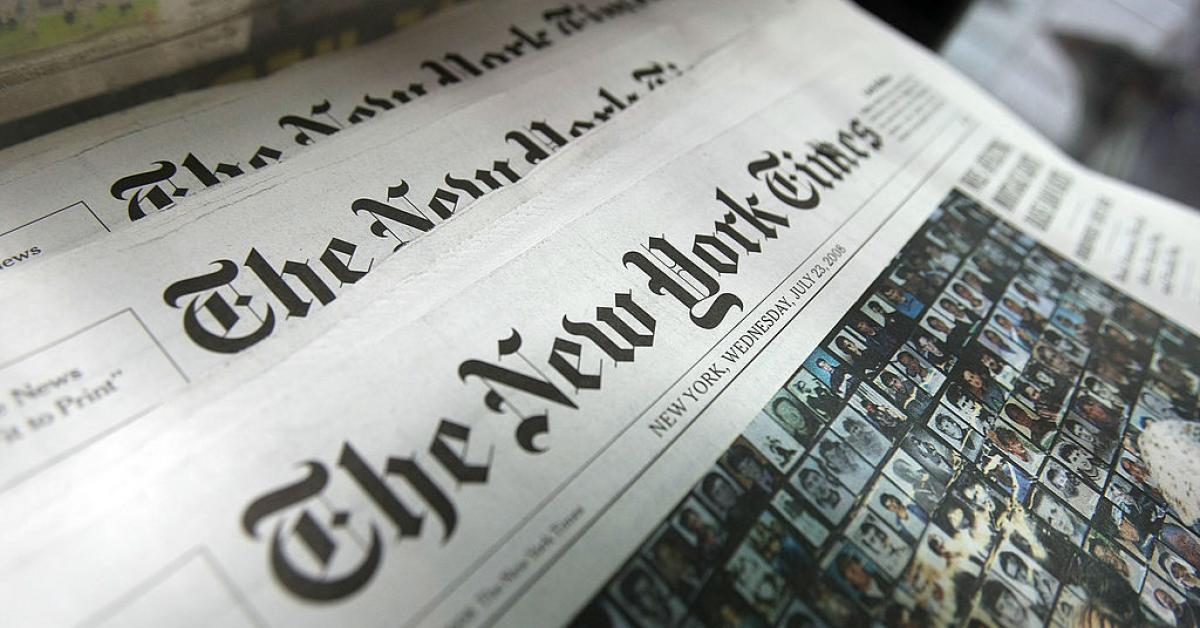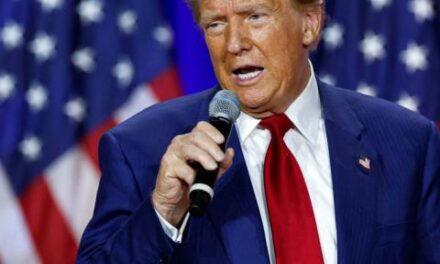We support our Publishers and Content Creators. You can view this story on their website by CLICKING HERE.

In the sultry days of summer 2020 as Donald Trump contemplated a second term, his aides engaged in a quiet conversation with members of the emerging digital media about an audacious idea.
The goal was to bypass the traditional news media who monopolized the White House Correspondents Association press room at the White House and set the “conventional wisdom” such as the false Russia collusion narrative.
In its place, the aides wanted to stand up a new press room in the Old Executive Office Building where new media free from the group think of the legacy press could get briefings, access to the president and flourish.
If there was a sticking point that summer of discontent, it was how the public might react to such a notion.
Four years, four indictments, two assassination attempts, a Jan. 6 based impeachment and a heavy dose of bogus and biased coverage later, the American voting public seems to be clamoring for such a change.
Especially with a steady flow of revelations of stories having been suppressed, like concerns about Joe Biden’s mental acuity early in the election or the Hunter Biden laptop.
“There was a time when, in my lifetime, your lifetime, when reporters were proud to break stories and be the first one to inform their listeners,” Rep. Glen Grothman, R-Wis., told Just the News on Monday. “This is not what’s going on. Now, the goal of the reporter seems to be to hide stories. And you know, our country cannot go on with that.”
The congressman, whose state has been an intensely fought battleground this election, said he’s sensed from the campaign trail that everyday Americans feel the way he does.
“In the last week, I’ve been at two Donald Trump rallies. The line that gets the most applause is when Donald Trump calls out the fake news, which is to say the mainstream media,’ Grothman noted. “If that wasn’t true when I was a child, the mainstream media ought to care what people think about it, Maybe they don’t care.
Surveys confirm lack of trust in media
A Gallup Poll revealed last month that a record low of only 31% of voters expressed a “great deal” or “fair amount” of confidence in the media to report the news “fully, accurately and fairly,” while a larger 36% expressed no confidence at all in traditional newspaper, TV and radio coverage, Another third expressed “not very much” confidence in the professional media. Gallup noted the trend of an increasingly unpopular media has been years in the making, dating to the advent of the Trump era if not earlier.
The 2024 election provided a chance for traditional media reporters to reverse the slump. Instead they doubled down on a coverage so anti-Trump (85% according to the Media Research Center) and slanted and inaccurate that it made public sentiment worse.
Anchors “fact checked” candidates with inaccurate information. Headlines, town halls and stories revealed a clear bias toward Democrats and against Republicans. And reporters did one of the biggest switcharoos in American electoral history when – after months of insisting President Biden was not cognitively impaired – they had to acknowledge in the end that Old Joe was, well, old and forgetful and confused after a disastrous June debate with Trump.
Documents unearthed by Congress in the last year also showed the media censorship of the Hunter Biden laptop story in late 2020 was based on false information and an influence campaign tied directly to Joe Biden’s campaign advisers rounding up sockpuppet “intelligence specialists” such as NewsGuard’s General Hayden to unapologetically play along with the ruse. And the rest of the legacy media went with it without scrutinizing such alarm bells.
In other words, the October 2020 surprise was exposed as so bogus that it likely immunized the electorate to another “surprise” four years later this election cycle.
Perhaps most consequently, pollsters say, there is some evidence that voters are moving beyond the legacy media to a new era of data and narrative consumption that gives traditional reporters shorter shrift.
“I think for the legacy media, this is the election we’ll look back on and say this is where they lost the narrative,” veteran pollster Scott Rasmussen told Just the News. “You know, for much of my life… there was a sense there were a couple of networks that really dominated, a couple of media outlets that really dominated coverage, and that just doesn’t happen anymore.
Preaching to the choir
“The New York Times can say whatever they want and whatever readers they have already agreed with them, they’re not having the ability to sway and control the narrative,” he added. “And so I think that will be the ending result and the media overall. Right now, the there’s very little trust in it.”
The signs of peril of the news media have played out in recent days in two famous newsrooms where reporters have gyrated and thrown tantrums when their owners or bosses wouldn’t let them have their way in shaping the narrative.
First it was The Washington Post – home of where America’s famous Watergate scandal was unmasked – has been transformed into a place where reporters revolt en masse to the decision not to endorse Kamala Harris, or any candidate they prefer for that matter.
The tantrum cost the paper a reported 250,000 subscribers but it did not sway its owner, Amazon founder Jeff Bezos who responded by publishing an op-ed in his own paper that delivered a blunt assessment of his troops to his troops. “Americans don’t trust the news media,” Bezos’s headline blared.
“What presidential endorsements actually do is create a perception of bias,” Bezos wrote. “A perception of non-independence. Ending them is a principled decision, and it’s the right one.”
Over the objection of reporters believing that they are anointed “kingmakers,” publishers of other major papers like USA Today and The Los Angeles Times have made similar decisions to withhold endorsements.
Reporters genuflecting to far-left influencers
At The New York Times, a separate tantrum played out in a newsroom meeting where Joe Kahn, the executive editor, refused to give ground to his reporting staff that his newspaper wasn’t tough enough on Trump.
Most amazingly, the reporters’ ire wasn’t born about concerns expressed in middle America but rather with the Democrat Party’s far left, according to a transcript of the raucous newsroom meeting published Monday by Semafor.
“The left’s criticism — basically saying ‘You’re not being direct enough about what Trump’s saying and doing — that’s been very loud in recent weeks,” said newsroom employee Jodi Kantor. “We wanted to ask you more directly: Does that criticism count for you, and how do you interpret criticism of The New York Times, when is it useful?” she asked.
“No, honestly, just no,” Kahn shot back. “I get all that incoming very powerfully in my inbox and in many conversations that I have. And I understand that that’s been a criticism of us.” He continued: “This is not about answering a critique on the left.”
The exchange captured poignantly a dynamic many experts say plagues traditional media outlets: Their current generation of reporters are taught more by journalism schools about personal branding instead of the duty to “seek truth and report it” and as such have been captured by elites on the left. As a result, they have failed to engage independents and conservatives about issues that matter to them. Even conservatives who have a profession that requires them to deal with the news media have tired of the dynamic.
“The media has lost a great deal of credibility by and large,” New York pollster John McLaughlin, whose clients include Trump, told Just the News.
“But there are some people, you know, they’re looking for the truth and just the news. And there’s many other media outlets that are trying to emerge, that are trying to be fair, you know, and that’s all there is. They want fairness,” McLaughlin added in an interview on the John Solomon Reports podcast.
The failure – or at least the perception of failure – to deliver that kind of fairness or open-mindedness may convince historians that legacy news media was this election’s biggest loser. It may also embolden Trump – should he win – to carry out that plan hatched in summer 2020.

 Conservative
Conservative  Search
Search Trending
Trending Current News
Current News 





